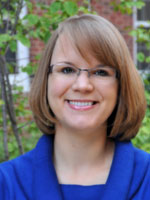|
How media attention to animal welfare influences meat demand . We have added to the ACDC collection a September 2010 report from Kansas State University by agricultural economists Glynn Tonsor and Nicole Olynk. Their 1999-2008 analysis of this subject revealed findings such as these:
You can read this research report here . Rural reading group is attracting new radio listeners. The International Federation of Agricultural Journalists (IFAJ) website features an innovative program that is attracting new listeners and readers. Leigh Radford, national editor of the Australian Broadcasting Corporation rural reporting unit, reports on the Bush Telegraph Reading Group. It features classic novels set in rural and regional Australia. The author describes the purpose of the Reading Group, how it began, how it operates and how it engages listeners before, during and after each aired program. You can visit a feature website where audience members can listen to each program and find out which book is coming up. Improving information on organics . That was the title of a set of presentations earlier this year at Agricultural Outlook Forum 2010, sponsored by the U. S. Department of Agriculture. You can read them here: ” USDA Market News Service: current reports and future initiatives ” by Michael Sheats, Chief of the Poultry Market News and Analysis Branch, USDA. ” Sustainable Agriculture: The Key to Health & Prosperity ” by Christine Bushway, Executive Director of the Organic Trade Association. ” Information needs from a producer’s perspective ” by Ron Strochlic of the California Institute for Rural Studies. Welcome to a new faculty associate. It’s a special pleasure to welcome Dr. Katie Abrams as an agricultural communications faculty member and ACDC associate here at the University of Illinois. With a Doctor of Philosophy degree in Agricultural Education and Communication, University of Florida, Dr. Abrams brings excellent experience to the Agricultural Communications program. An undergraduate degree in agricultural communications from Purdue University launched her career. She served as a national officer of Agricultural Communicators of Tomorrow (ACT). Since then she has gained professional experience in newspaper reporting, magazine editing and design, and Web development and management. She was on the team that helped re-brand and market Florida Cooperative Extension. Dr. Abrams has taught agricultural communication courses since 2007 and earned national honors for her research. It focuses on four broad areas: (1) interest group communications, (2) Web 2.0 and social media, (3) sensemaking and (4) the news media. Her dissertation research examined how environmental and animal welfare messages affected attitudes and intention to vote on an animal welfare policy. “We have scarcely begun properly to harness human communication capacity that lies within our resources . ” That is not a current call for using the new social media. Instead, it dates back more than 40 years. Recently we found it in a 1969 speech by Erskine Childers of the United Nations Development Programme. Leader of the UNDP Development Support Communication Service for Asia and the Pacific, he emphasized an enduring theme. That is, new means of communicating outpace our ability to use them well. He asked in 1969, “Why have we scarcely begun to use transistor radios for development support communication?” Also, he noted that millions of people were able to sit in front of television sets – even deep in the rural areas in some countries – and watch a man step onto the moon. “Yet most of the same millions of people, that same day, had been denied the information they needed…” Get in touch with us at docctr@library.uiuc.edu if you would like to read this speech, which we added recently to the ACDC collection.
Communicator activities approaching
Rapping online for dairy promotion. Yeo Valley Farms in England is using a video rap campaign designed to brand a line of organic yogurt, milk, creams, butter and other dairy products. Viewers of the ads are almost assured of learning how to pronounce ” Yeo Valley” after hearing and watching the young presenters rap in milking and machine sheds, near a farmstead and in pastures with Holsteins grazing nearby. You can view the two-minute Yeo Valley rap advertisement on YouTube here . Get behind-the-scenes information about the campaign here . Best regards and good searching. Please pass along your reactions, suggestions and ideas for the Agricultural Communications Documentation Center. Feel free to invite our help as you search for information. And please suggest (or send) agricultural communications documents we might add to this unique collection. We welcome them in hard copy (sent to Ag Com Documentation Center, 510 LIAC, 1101 S. Goodwin Avenue, Urbana, IL 61801) or in electronic format sent to docctr@library.uiuc.edu . Get in touch with us when you see interesting items in the ACDC collection and can’t gain full-text access through information in the citation, or through online searching. We will help you gain access. |
2010-10-30
